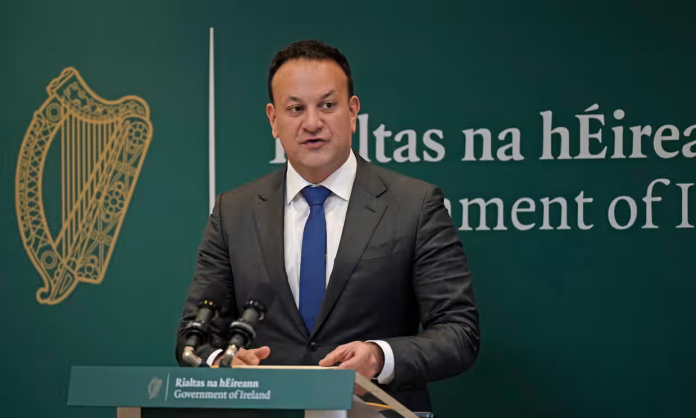On 20 December, Ireland sued the UK at the European Court of Human Rights over a law granting immunity to combatants in the Northern Ireland conflict.
The UK Parliament passed a law in September that established the Truth and Recovery Commission, offering amnesty to British security and paramilitary personnel if they co-operate with its investigations.
All political parties in Northern Ireland and the Irish government in Dublin oppose the law, with the Council of Europe voicing “serious concerns.” Deputy Prime Minister Micheál Martin stated that the law was “not compatible” with the UK’s obligations under the European Convention on Human Rights (ECHR).
“The decision by the British government… [to] pursue legislation unilaterally, without effective engagement with the legitimate concerns that we, and many others, raised left us with few options. The British government removed the political option, and has left us only this legal avenue.”
Taoiseach (prime minister) Leo Varadkar told reporters in Dublin that the court would be asked to conduct a judicial review of the legislation.
We informed the British government of that this morning.
Ireland will take the case to the European Court of Human Rights in Strasbourg, which oversees the ECHR and is recognised by 46 states, including the UK and Ireland. Martin noted that incorporating the convention into Northern Ireland law was a “specific and fundamental requirement” of the 1998 Good Friday peace accords.
His legislation, officially called the UK’s Northern Ireland Troubles (Legacy and Reconciliation) Act 2023, has been endorsed by groups representing British veterans of the period. They argue that former soldiers have been unfairly persecuted.
Last year, British soldier David Holden was given a three-year suspended sentence for killing a man at a checkpoint in 1988 by shooting him in the back. Last week, a judge in Northern Ireland declared that “Soldier F” – the only British soldier accused of killing 13 civilians on Bloody Sunday in 1972 – would stand trial for murder.
Ireland’s legal action is likely to prove controversial in Britain, where the ECHR is increasingly being attacked by the ruling Conservatives. They want Prime Minister Rishi Sunak to pull the country out of the convention over the protection of refugees and asylum seekers arriving in Britain.
The peace accords ended the Troubles, which left more than 3,500 people dead. According to the UK government, some 1,200 deaths since then remain under investigation.
